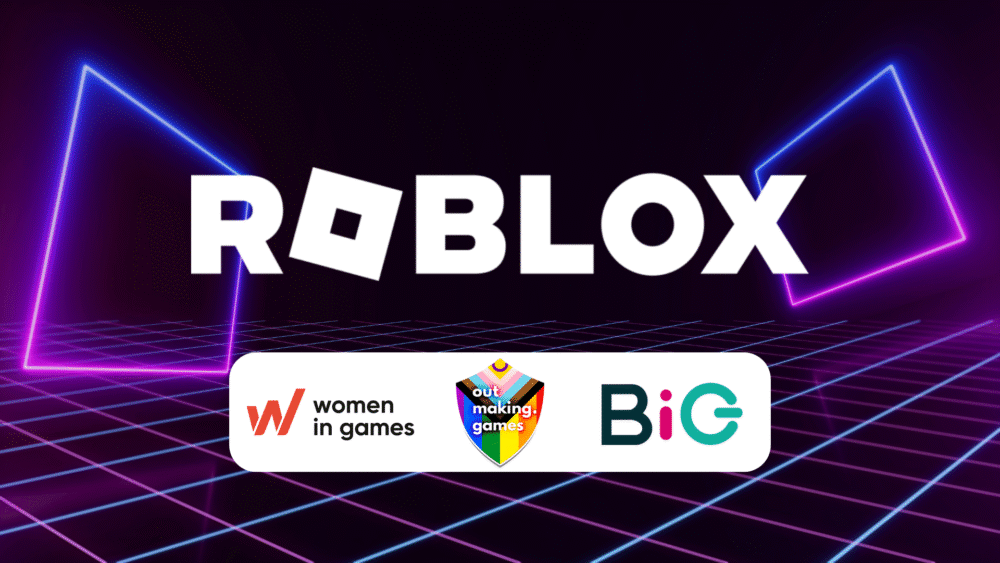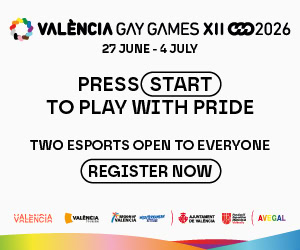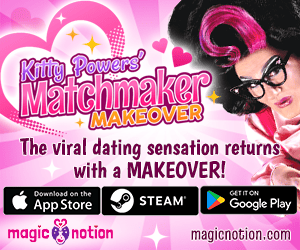
Our Rights Are Not ‘Sensitive’: Gaming advocacy groups pen open letter to Roblox
In a move that has sparked outrage across the industry, Roblox has proposed new creator guidelines that label topics like marriage equality, racial profiling, and reproductive rights as “sensitive issues.” While framed as part of an effort to enhance parental controls, the policy effectively treats fundamental human rights as controversial or debatable topics, a step backward for a platform that hosts a massive, diverse community of players and creators.
This approach of ‘false neutrality’ has drawn swift condemnation from a coalition of advocacy groups. Out Making Games, Women in Games, and BAME in Games have co-signed a powerful open letter calling on Roblox to reconsider. They argue that instead of protecting young users, the policy silences marginalised voices, undermines educational content, and normalises discrimination by suggesting equality is just one opinion among many.
The letter powerfully outlines how this policy is not only harmful but unnecessary, pointing to established, globally recognised rating systems like PEGI and IARC as a better path forward.
We believe this is a crucial conversation for our community and are sharing the open letter in full below.
Roblox’s recently proposed creator guidelines regarding “sensitive issues” represent a step backward for both creative expression and social justice. These changes threaten to undermine the vibrant, inclusive creative community that has flourished on the platform since 2006, while potentially causing real harm to marginalised groups in society.
The Policy in Question
As part of introducing new parental controls, Roblox has established “sensitive issues” content descriptors for experiences addressing contemporary social, political, or religious topics. The company’s guidelines specifically cite “issues such as immigration, capital punishment, gun control, marriage equality, pay equity in sports, prayer in schools, racial profiling, affirmative action, vaccination policies, and reproductive rights” as examples requiring these descriptors.
The Problem with False Neutrality
Roblox claims the descriptor “is not meant to take a stance,” but the effect is the opposite. By categorising equality and human rights as “sensitive,” the platform treats them as debatable rather than fundamental.
- Consider what Roblox has chosen to highlight:
- Marriage equality – framing LGBTQ+ rights as debatable rather than fundamental human rights
- Pay equity in sports – suggesting gender-based pay disparities are merely “sensitive” rather than discriminatory
- Reproductive rights – treating women’s bodily autonomy as a contentious political issue rather than basic healthcare
- Racial profiling and affirmative action – presenting systemic racism and efforts to address it as equally valid “sides” of a debate
Now consider the following facts, from GLAAD and Nielsen:
- 11% (approximately 21 million) of active gamers in the US alone identify as LGBTQ+ with total consumer gaming spending power of $6 billion dollars
- 68% of LGBTQ+ gamers are more likely to support game companies that include authentic LGBTQ+ representation
- LGBTQ+ gamers spend more time gaming per week compared to non-LGBTQ+
- 89% of LGBTQ+ gamers say seeing themselves represented in games positively impacts their mental health and sense of belonging.
We support efforts to keep children safe online – especially girls, who face disproportionate harassment and grooming. But safety cannot be achieved by silencing content that educates and empowers.
Issues such as equal pay, reproductive rights, and gender equality are central to girls’ and women’s lived experiences. Marking these as “sensitive” risks hiding content that is vital to representation, education, and inspiration.
Representation matters. Research shows:
- More than half of women and girls report experiencing harassment or abuse in online games (Women in Games, 2024).
- Young women who see their identities and concerns reflected in games are more likely to consider careers in technology and gaming.
- Women are the fastest-growing demographic of players worldwide, yet remain under-represented in development and leadership roles.
- Positive role models and visible discussion of gender equality in games directly impact confidence, aspirations, and sense of belonging.
When these conversations are suppressed, the result is not safety but silence. It discourages young women from participating fully, reinforces harmful stereotypes, and weakens the pipeline of future creators and leaders.
Takeaway Reality reports Roblox’s global creator and player base geographic demographics as “35.7% Asia and Pacific, 20.9% Europe, 19% United States and Canada, 24.3% Rest of the World”. This is not a culturally monolithic platform but a truly international, multi-racial community. Labelling topics like racial profiling and affirmative action as “sensitive” implicitly frames them as subjective debates rather than urgent matters of human rights.
This false neutrality downplays systemic racism by equating discrimination with the policies meant to remedy it, potentially emboldening those who deny or dismiss racial inequality.
Instead of protecting children, the policy risks teaching Roblox’s diverse audience that issues of justice and equality are controversial opinions rather than universal values, thereby reinforcing the very divisions it claims to guard against.
Beyond Corporate Responsibility: Societal Impact
These guidelines don’t exist in a vacuum. When a platform used by millions of young people frames civil rights as “sensitive issues,” it:
- Normalizes discrimination by suggesting that equality is merely one opinion among many
- Silences marginalized voices who use creative platforms to share their experiences and advocate for change
- Undermines educational content that could help young people understand important social issues
- Reinforces the harmful status quo by discouraging discussion of systemic problems
The Creative Community at Risk
Roblox has cultivated one of the most innovative and diverse creative communities in gaming. Developers and creators have used the platform not just for entertainment, but for meaningful expression, education, and social commentary. These new guidelines threaten to:
- Stifle creative engagement with significant social topics
- Drive away creators who value inclusive, progressive content
- Reduce the platform’s potential as a tool for positive social change
- Create a sanitized environment that fails to reflect the real-world young people inhabit
There Is a Better Way: Global, Transparent Standards
The games industry already has trusted, internationally recognised age-rating systems such as PEGI and the International Age Rating Coalition (IARC).
These bodies:
- Assess content, not politics – rating for violence, sexual references, gambling cues and online interactions without branding civil rights as “controversial.”
- Provide clear, public criteria and decades of expertise that parents and developers worldwide already understand.
- Offer a single, harmonised questionnaire (IARC) that automatically maps to local standards from PEGI in Europe to ESRB in the US giving Roblox global consistency.
Roblox does not need to invent a vague, easily abused “sensitive issues” label. It can and should adopt these established systems, giving parents the clarity they deserve and creators the freedom to speak.
Moving Forward
While parental controls serve an important purpose, they shouldn’t come at the expense of fundamental human dignity. We are calling on Roblox to reconsider these guidelines and find ways to protect young users without legitimizing discrimination or silencing important voices.
The company has built something remarkable over nearly two decades. It would be tragic to see that legacy undermined by policies that, intentionally or not, perpetuate the very inequalities that creative expression has the power to challenge and change.
Out Making Games, Women in Games, BAME in Games





